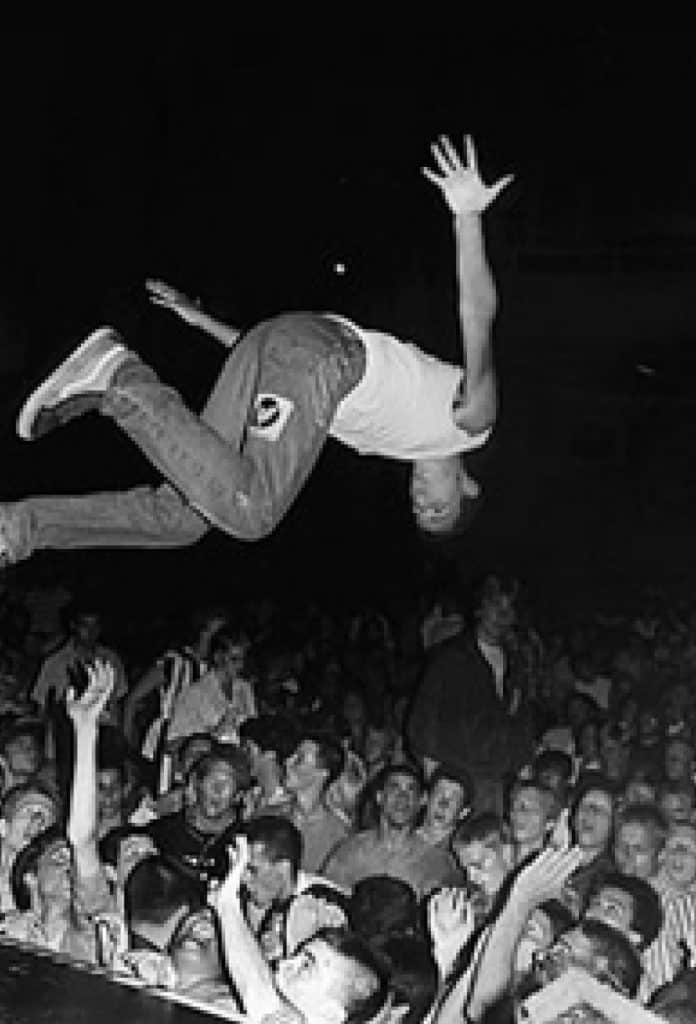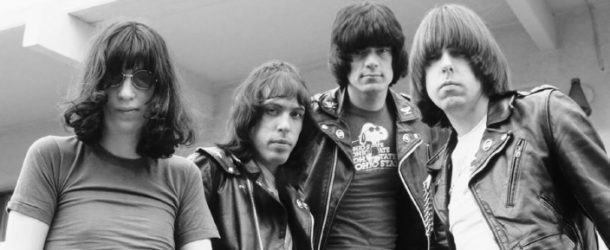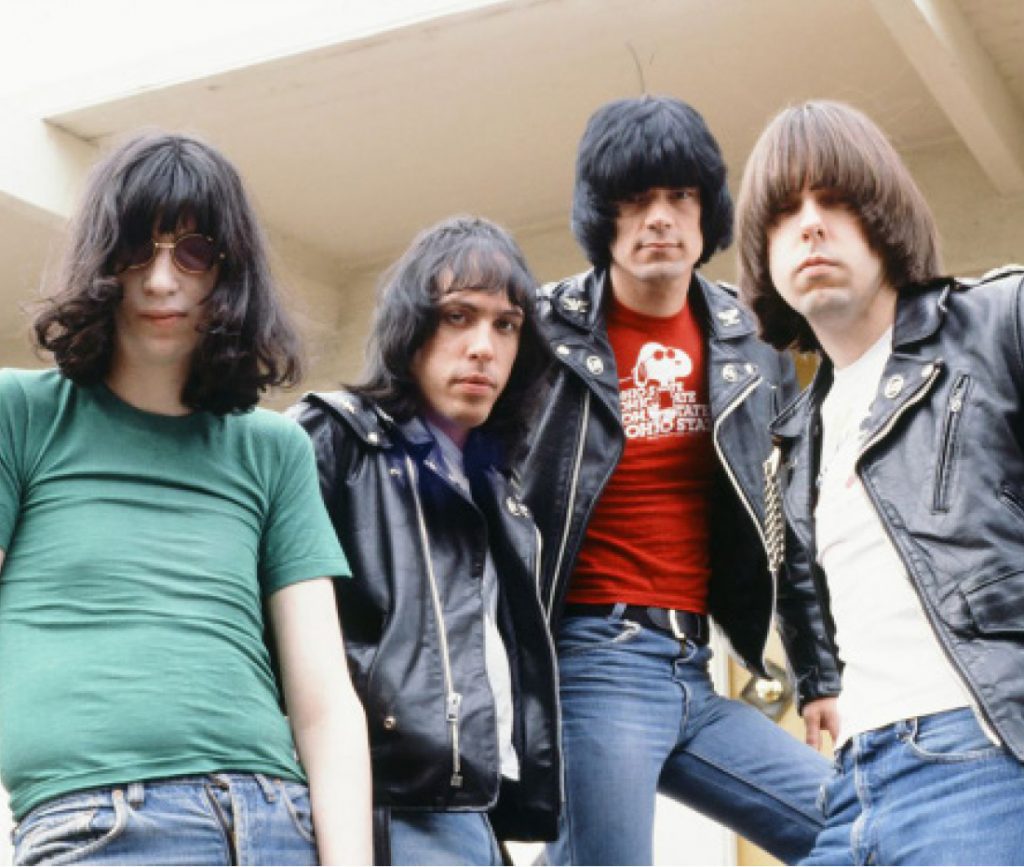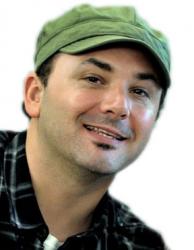By Todd C. Elliott
The number 42 has great significance. In fact, the number 42 could be the answer to the meaning of life, the universe and everything else if author Douglas Adams is to be believed. It was 42 years ago that something remarkable happened in Lake Charles. It is believed by some (mainly me) that this cataclysmic event unleashed a musical and cultural curse on the city of Lake Charles. Anguish and misery were bestowed upon any Lake Area punk band that formed after the date of Jan. 26, 1979.
That was the day that the founding forefathers of punk rock came to town to perform at The Lake Charles Civic Center. The Ramones did a blitzkrieg stop and played a show, their only show in Lake Charles. Except there was a catch. The Ramones were not bringing the newfangled punk rock to town so much as they were bringing a rock fight to Toto.
Yes, it was the Ramones versus Toto. Imagine, if you will, you’ve entered the Twilight Zone, and The Ramones are the opening act for Toto. Toto (years before their timeless hit “Africa”) was a local favorite, as it featured Vinton native Bobby Kimball on lead vocals. The Ramones never stood a chance as the crowd in the Civic Center gathered in support of the local boy.
A band called Head East was scheduled to open for Toto. To be fair, Head East would have been a better fit than the Ramones. The Ramones as opening act for Toto was a musical live-show mismatch, much like the legendary Jimi Hendrix’s opening for The Monkees at the peak of their success (not Jimi’s).
The Ramones’ Lake Charles performance did not go well.
For Tim Hibbs, a young man who lived in DeRidder at the time, it’s a tale that begins with “No! Really!”
“No, really!” said the radio host. “On Jan. 26, 1979, at the Lake Charles, La., Civic Center, the godfathers of punk played to a crowd who was expecting Head East and definitely was not ready for the sonic barrage that hit them. The Ramones came on and knocked out three songs before the crowd had a chance to process what they were witnessing. Once they did, a wave of bottles, cups, shoes and other debris rained down on the band, which only caused them to play faster and louder. Johnny stood on a monitor yelling ‘F*** you!’ at the bottle throwers, and Joey flipped them the bird with his free hand. Through all of this ruckus, the band never missed a note.”
The above statement was taken from Hibbs’ account as it was published in a 2014 blog; 2014 was the year when Tommy Ramone died at 65. Hibbs would later have an opportunity to interview Joey Ramone and DeeDee Ramone on his Dallas radio show on KNON-FM. Hibbs, having been there the day punk rock came to Lake Charles, had to invite the lead singer and bass player on the air.
The booing, pelting and spitting (and not in the acceptable punk rock way) came from a crowd who seemed ready to fight the band from Queens. It was then that the Ramones road crew, uniformed in black leather jackets and blue jeans, came to the stage to stand between the band and the Civic Center crowd.
The roadies are also credited with performing the first stage-dive in Lake Charles’ history, as they dove into the angry mob near the stage, stiff-arming the audience. Punches were thrown like bottles that day. There was chaos and cussing. It was at once the most punk thing and most anti-punk thing that ever happened in Lake Charles.

That night still bugged Hibbs years later. It was in 1987 that Hibbs interviewed Joey and Dee Dee for his radio show on KNON in Dallas. Hibbs thought they certainly wouldn’t remember the short set in Lake Charles. But they did. Thanks to Hibbs, the interview now lives on Soundcloud.
Dee Dee answered the obvious question with a seemingly obvious music-industry answer. So, how did The Ramones end up opening for Toto in 1979?
“Our manager slipped their manager a few bucks to get us on the show,” said the late Dee Dee Ramone.
Then Joey chimed in.
“That was probably the weirdest show,” he said. “Those people didn’t know what to make of us. We were like aliens to them.”
I was four years old at the time, so I have an excuse as to why I wasn’t there that fateful and historic day. And my first introduction would come as part of the soundtrack for “National Lampoon’s Vacation,” which featured the Griswold children jamming to “Blitzkrieg Bop” on their respective Sony Walkman headphones. Since then, The Ramones have had a special place in my heart.
For years, as a local musician and singer songwriter, the Civic Center story resonated with me. I often imagined Joey Ramone on stage, belting out a damnation under his breath, slightly off microphone in a 1-2-3-4 tempo.
It was this curse, the Curse of The Ramones, that would be the scourge of any small-town punk rocker growing up in Southwest Louisiana fighting the uphill battle to play original songs as opposed to covers.
The show at the Civic Center was a microcosm of the area itself, the concert a reflection of local society. SWLA’s people were not ready for the no-hit, three-chord wonder that was the Ramones in 1979.
While the crowd that night seemed to “Hold the Line” for Toto, the Ramones would garner some success later that year. One showbill even featured the Ramones opening for both Black Sabbath and Van Halen, a show which Joey Ramone claimed was “a good one.”
It would be later in 1979 that the Ramones, being the underground sensation that they were (despite the charts), would star in their own feature film, “Rock and Roll High School.” The film, a punk rock version of A Hard Day’s Night, also starred Clint Howard, so of course it was doomed.
The group would then go on to record with Phil Spector that same year. End of The Century would become their best-charting album and the only one produced by Spector. It should be noted that at the time of the performance in Lake Charles, the Ramones would have been packing a hard-hitting set list as they would have recently released their fourth studio album. The set list included Ramones, Leave Home, Rocket To Russia and Road To Ruin, and it would have been as legendary as it was infamous.
Furthermore, the band’s first four albums were their gospels, representing the bulk of their best work. After the Civic Center performance, the Ramones saw one album turn gold, their self-titled debut from 1976. The album was a landmark for a genre of music that would become homogenized, or “alternative,” in the 1990s.
Finally, the answer to that age-old question “how the hell did the Ramones open for Toto in Lake Charles?” has been revealed, and the mystery solved. While the Ramones shouted “Hey! Ho! Let’s Go!,” the crowd in Lake Charles fired back a “Hey! No! Y’all Go!”
Alas, one cannot blame the Lake Charles crowd during the age of Disco. Being exposed to this thing called punk rock was alien to most Americans. Punk was tainted by fear-mongering news reports of the likes of Sex Pistols bassist Sid Vicious who, at the time of the Ramones Civic Center appearance, had recently been accused of killing his own girlfriend. In fact, one week after the Ramones show at the Civic Center, Sid Vicious would commit suicide before standing trial for murder.
The implosion of the Sex Pistols in their final show in Los Angeles 1978 and the death of Vicious in February, 1979, pointed to a faltering and dying fad of a music genre. Sid’s death seemed like a curtain call for the punk rockers. Sid seemed to doom punk rock and take it down with him. Punk, in 1979, was on life support and in critical condition.
Then, a funny thing happened to a music that was supposed to die — it didn’t. While most of the band members have been deceased for years now, the music of the Ramones remains too tough to die.

















Comments are closed.